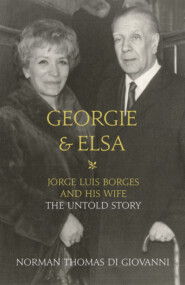По всем вопросам обращайтесь на: info@litportal.ru
(©) 2003-2025.
✖
The Silenced
Автор
Год написания книги
2019
Настройки чтения
Размер шрифта
Высота строк
Поля
It was almost nine o’clock at night by the time Julia got all the boxes into her office. The corridor was deserted, its doors closed, half the fluorescent lights in the ceiling above the linoleum floor switched off. She liked working late. It meant she avoided unnecessary distractions, telephones ringing, colleagues knocking on her door when they didn’t actually want anything.
The pictures were all laid out on her desk. First their unidentified body with its silent grin. She looked at him. No matter who he was and what he had done, no one deserved to die like that. Someone had stripped him of everything. His name, his dignity, even his humanity.
Below the pictures of the body she had lined up the photographs from Skarpö.
First the burned-out wreck of a house surrounded by snow. Black beams, a solitary chimney stack sticking up toward the sky from the foundations. Then a number of pictures that were far worse: charred bodies among the ruins, others outside in the snow. Lifeless, some of them with visible holes in their torsos or heads. Spent cartridges everywhere. Short ones from pistols, longer ones from assault rifles, red or blue ones from shotguns. The photographs were an all-too-visible reminder of just how violent the shoot-out had been.
Superintendent Peter Molnar lay on his back with his mouth wide-open, several of his dazzlingly white teeth shot out. The blood around his head formed a red halo. His eyes were staring blankly up at the sky. She’d seen the picture before, enough times for the shudder in her stomach not to feel quite so strong. Poor Peter. He’d been a good officer, someone most people spoke well of. Admittedly, he and the men on his team were the same tiresome alpha males whom the force seemed to be awash with. The guys who tried it on with her, one after the other, on the few occasions she had been stupid enough to visit any of the police bars. But Peter was at least both smart and funny. He knew when it was time to give up and go and hunt easier prey. And now his wife was a widow and his children left fatherless. She turned the photograph over.
Detective Inspector Josef Almlund’s death looked more peaceful. She had known him too, of course. Peter socialized more with his second-in-command than with his own family. Josef had been a large man of few words, always ready to do exactly what Peter asked of him. Even lie to Peter’s wife, if that was called for. Which it probably had been on a fairly regular basis.
Josef Almlund was sitting at one end of the house, leaning back against the foundations with his head lolling on his chest. The fire had burned his jacket and the hair at the back of his neck, but apart from that it almost looked like he was asleep. Having a bit of a rest before the fighting started again. She turned the picture over, just as she had with the one of Molnar. She paused for a moment, trying to shake off the images of the two dead men. She only half succeeded. She thought about David Sarac. The horrors he must have experienced out there. Watching his friends die around him. The last she had heard about Sarac was that he was in a nursing home in an undisclosed location. Hardly surprising, really.
Her cell phone buzzed, but she ignored it, just as she had a few minutes earlier. She knew it was Amante. He’d have to wait until morning, when she had a better idea of things. Besides, her conversation with Wallin was still in the back of her mind.
She gathered all the photographs she needed and put the others back in the evidence boxes. Now at least she had a time and a location to work with. On January 2, 2014, the dead man had been on the island of Skarpö, just outside Vaxholm in the Stockholm archipelago. According to the pathologist, the body parts had been in the water for approximately four months, so since late February or thereabouts. That left a gap of six, eight weeks between the Skarpö shoot-out and the time when the body parts were deposited beneath the ice.
She looked at the photographs from the Forensic Medicine Unit again. Stared at the mutilated smile.
“I’m getting closer,” she whispered. “I’ll soon know who you are.”
Her cell phone started to buzz again, but she let it ring.
* * *
“Come in, David. I’m Frank.” The man who had opened the door held out his hand toward Sarac, but he didn’t take it. It was the same man from the grainy photograph Eskil had shown him. The nurse was right: they did actually look quite similar. They both looked like cops. Or criminals. Or both.
He walked past the man into a shabby little office. The room couldn’t be more than fifteen to twenty square meters in total. By one wall was a camping mattress and a sleeping bag, and there was a door that presumably led to a toilet. In the opposite wall was a dirty window facing the parking lot outside. Two overflowing Dumpsters were visible below, but, judging by the general state of the building, all construction work had been abandoned a long time ago. The whole of the run-down industrial estate felt badly neglected. Next to the bus stop Sarac had seen a couple of large signs proudly showing the future. Glass and concrete reaching for the skies. No 1970s barracks like this.
“It’s all ready, just as we agreed.” The man calling himself Frank gestured toward the two wooden chairs beside the camping table in the middle of the room. There was an open laptop on the table and, next to it, a camera mounted on a tripod.
Sarac took off his jacket and hung it on the back of the chair, then sat down. Frank put a photograph in front of him. The blonde woman on the hood, the same terrible image as the picture he had already seen, but from a different angle. Then a sheet of paper, a printout from the vehicle register with the name of the car’s owner clearly circled. Then another picture. The good-looking family again.
Sarac swallowed. His heart was pounding so hard that he was having trouble breathing.
“He called me straight afterward. Crying like a little child,” Frank said. “I went round and cleaned up. Got rid of all the evidence that he’d ever been there. And in return he told me about you. Who you met, how much you could remember after the accident. He was my source in the hunt for Janus. And he told me that you and Janus were out there on the island.”
Sarac took a deep breath. So it was true. He’d been betrayed. Betrayed by his ultimate superior.
“You understand what this means, don’t you?” Frank went on in a low voice. “What the consequences could be if you choose to go on with this? This sort of knowledge can be lethal.”
“If I d-didn’t …” Sarac cleared his throat. The bullet that had passed through his neck out on the island had damaged his larynx, making his voice unreliable. “If I didn’t, I’d hardly be here.”
Frank nodded, then went over to the small sink at the far end of the room and poured a glass of water, which he put down on the table. Then he sat down in front of the computer. Sarac took a couple of sips before looking up.
“Okay,” Frank said. “Your turn. Your secret in return for mine, like we agreed.”
The man pressed a key and a little red light lit up on the camera. “You can start talking whenever you like.”
Sarac cleared his throat again and instinctively scratched the scar on his neck.
“M-My name is David Sarac. I handle informants for the Stockholm Police, and I was responsible for a secret source, an undercover agent called Janus. I was also responsible for the shoot-out on Skarpö in the New Year. Everyone who died and was injured out there was trying to get hold of Janus, to uncover his true identity. None of them succeeded.”
He paused, then breathed in through his nose.
“I’m the only person who knows the truth. The only survivor who knows who Janus really is …”
* * *
Julia stood up from her chair. She hit her knee hard against the desktop and very nearly emptied the contents of her morning coffee across the collage of terrible images that had lain on her desk since the previous evening.
“Gone? How can a body just be gone?”
“Well …” The pathologist’s voice on the phone was dry as dust. “I didn’t say it was gone. I said it isn’t here. There’s a big difference. We aren’t in the habit of losing bodies here in the Forensic Medical Unit.”
The pain in her knee made Julia grimace. She was at the point of saying that she hadn’t had enough coffee to deal with semantic pedantry but managed to stop herself just in time.
“Do you feel like telling me what has happened to the body, then?” she said as calmly as she could.
“Your colleagues came and collected it last night. They brought their own van and everything.”
For a couple of seconds Julia’s brain stopped working.
“My colleagues,” she managed to say. “My colleagues moved our dismembered body?” She could hear how stupid she sounded.
“Exactly,” the pathologist said. “Your colleagues in the Security Police. According to the night staff, they seemed to be in quite a hurry.”
* * *
The door to Pärson’s room was open, but it wouldn’t have made any difference if it had been barricaded from the inside. No one stuck their oar into her cases—not the Security Police, nor anyone else.
“What the hell is going on? Why have the Security Police taken my dead body?”
“And good morning to you too, Gabrielsson. I was just about to call you, so you’ve saved me the trouble. Please have a seat.”
Pärson waved his fleshy hand toward one of the two chairs opposite his desk. Only then did Julia realize that Amante was already sitting in the other one.
“Well,” he went on, “the news I was going to share with the two of you, which Julia has evidently already heard, is that the Security Police, in their great wisdom, have decided to ease our burden.”
He smiled ever so slightly, just enough to crease his jowls.
“Apparently our dismembered body is connected to a suspected terrorism case. Some sort of defector. Syria or Iran or something.”
“That’s not true,” Julia said, rather less calmly than she had hoped.
“No?” Pärson’s happy smile faltered slightly.
Julia took a deep breath. “Our victim was involved in Skarpö. There’s a match with his DNA in the register. We already knew that at least one person got away, so that’s probably who we’ve found.”











